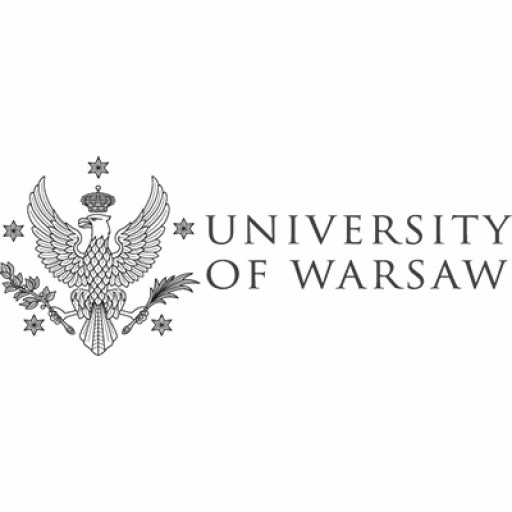Photos of university / #ouranu
The Bachelor of Finance at the Australian National University offers students a comprehensive education in the principles and practices of finance, equipping graduates with the analytical and strategic skills necessary to succeed in the dynamic financial sector. This program is designed to provide a solid foundation in areas such as investment analysis, financial markets, corporate finance, and risk management, ensuring students acquire both theoretical knowledge and practical skills. The curriculum combines rigorous coursework with real-world applications, including case studies, industry projects, and internships, to prepare students for diverse careers in banking, asset management, financial consulting, and corporate finance. Students will explore topics such as financial econometrics, international financial management, behavioral finance, and ethical issues in finance, fostering a well-rounded understanding of the global financial environment. The program is delivered by expert faculty with extensive industry experience, utilizing innovative teaching methods and state-of-the-art facilities. Additionally, students have opportunities to engage in networking events, professional development workshops, and collaborations with industry partners, providing valuable connections and insights into the financial sector. The Bachelor of Finance emphasizes analytical thinking, quantitative skills, and ethical decision-making, preparing graduates to navigate complex financial landscapes responsibly and effectively. Graduates of this program are well-equipped to pursue careers in financial analysis, investment banking, risk management, financial advisory, and other related fields, or to continue their studies in advanced finance or business programs. With its strong emphasis on both theoretical foundations and practical applications, the Bachelor of Finance from ANU is an ideal choice for students aspiring to become influential professionals in the global financial industry.
The Bachelor of Finance program at the Australian National University is a comprehensive undergraduate degree designed to equip students with a deep understanding of financial principles, markets, and institutions. The curriculum combines theoretical knowledge with practical application, ensuring graduates are well-prepared for careers in finance, banking, investment management, and related fields. Throughout the program, students explore core areas such as corporate finance, financial markets and instruments, financial analysis, risk management, and ethics in finance. The program emphasizes quantitative skills, critical thinking, and strategic decision-making, enabling students to analyze financial data effectively and make informed recommendations.
Students will have the opportunity to engage with real-world financial issues through case studies, simulations, and internships, fostering a practical understanding of how financial concepts are applied in diverse industry contexts. The program also covers emerging topics such as sustainable finance, behavioral finance, and technological innovations like fintech and blockchain, reflecting current trends in the industry. Academic coursework is complemented by access to world-class facilities and resources, including financial databases and software tools used by professionals.
The degree is suitable for individuals interested in a career in investment banking, asset management, financial consulting, or corporate finance. It provides a strong foundation in finance theory while nurturing analytical and quantitative competencies that are highly valued in the financial sector. Graduates of the Bachelor of Finance will be equipped to pursue further postgraduate studies or to enter the workforce with confidence, demonstrating a blend of technical expertise and ethical judgment. The program's flexible structure allows students to tailor their studies through elective courses and specializations, aligning their education with their specific career goals. Overall, the Bachelor of Finance at ANU aims to produce innovative, ethical, and globally-minded finance professionals ready to contribute to the evolving financial landscape.
A Bachelor of Finance at the Australian National University requires completion of a total of 144 units over the course of the program. Students must undertake core courses that cover foundational topics such as financial accounting, corporate finance, investment analysis, and financial markets. The curriculum emphasizes quantitative skills, including courses in financial mathematics and econometrics, to ensure students are well-equipped for analytical roles in finance. In addition to core subjects, students are encouraged to choose from a range of elective courses that may include international finance, derivatives, financial risk management, and ethical practices in finance. To fulfill the program requirements, students must complete a combination of lectures, tutorials, and practical exercises, often involving case studies and projects that simulate real-world financial decision-making. The program places importance on developing both theoretical understanding and practical application skills, with opportunities for internships and industry placements integrated into the curriculum. Students are also required to complete a capstone project or thesis that demonstrates their comprehensive understanding of financial concepts and their ability to conduct independent research. The ANU’s program ensures a broad understanding of the economic and regulatory environment influencing financial markets globally and locally. To graduate, students must achieve an overall grade point average (GPA) specified by the university, typically around a credit average, depending on the year and specific conditions. Students interested in specializing further can opt for minors or majors in areas such as financial economics or banking. The program is designed to prepare graduates for careers in investment banking, financial analysis, asset management, and corporate finance, among others. International students will need to meet English language proficiency requirements as stipulated by the university. Throughout their studies, students are encouraged to engage with industry practitioners through seminars, workshops, and networking events to enhance their professional development.
The Australian National University offers comprehensive financing studies within its degree programs, providing students with a solid foundation in financial principles, markets, and institutions. The programs are designed to equip students with analytical skills, quantitative methods, and critical understanding necessary for careers in finance, banking, investment, and corporate sectors. Courses typically cover areas such as corporate finance, financial markets and institutions, investment analysis, risk management, and financial derivatives. The university emphasizes a blend of theoretical knowledge and practical application, often involving case studies, simulations, and internships to enhance experiential learning. Students gain exposure to the functioning of financial markets, global economic factors, and regulatory environments, preparing them for dynamic roles in financial services. The coursework is delivered by experienced faculty members with expertise in various finance disciplines, ensuring rigorous academic standards and industry relevance. An emphasis is placed on developing strong analytical and quantitative skills, including proficiency in financial modeling and data analysis tools. The programs may also include opportunities for specialization in areas like asset management, financial engineering, or sustainable finance, aligning coursework with emerging industry trends. The university's extensive network of partnerships with financial institutions provides students with internship opportunities and industry connections, facilitating a smoother transition into employment. Financial aid options, scholarships, and bursaries are available to support students financially throughout their studies. Moreover, the university supports international students, offering orientation and ongoing assistance to ensure a successful academic experience. Upon graduation, students are well-prepared to enter competitive financial environments, equipped with a global perspective and strong foundational knowledge. Overall, financing studies at ANU combine rigorous coursework, practical experience, and industry engagement to prepare graduates for successful careers in the complex and evolving world of finance.
The Master of Finance at the Australian National University (ANU) is a comprehensive postgraduate program designed to prepare students for a variety of careers in the finance industry. This program provides students with a solid foundation in financial theories, quantitative techniques, and practical applications relevant to modern financial markets. The curriculum covers a broad range of topics, including financial analysis, investment management, corporate finance, financial risk management, derivatives, and international finance. Students also have opportunities to develop advanced skills in financial modeling, data analysis, and decision-making processes, which are vital in today's data-driven financial environment.
ANU's Master of Finance program is delivered by a distinguished faculty with extensive industry experience and academic expertise. The program uses a blend of lectures, seminars, case studies, and practical projects to foster both theoretical understanding and practical skills. Students gain exposure to real-world financial issues through collaboration with industry partners and participation in simulations and trading exercises. The university's location in Canberra, the political and administrative center of Australia, provides unique opportunities for networking and engagement with government agencies, financial institutions, and multinational companies.
The program often attracts students from diverse backgrounds, including economics, business, engineering, and mathematics, fostering a dynamic and multicultural learning environment. The program typically requires coursework completion, and may include an optional research component or a capstone project that allows students to apply their skills to real-world financial problems. A strong emphasis is placed on developing quantitative skills, analytical thinking, and ethical decision-making aligned with global financial standards and regulations.
Graduates of the Master of Finance at ANU are well-equipped to pursue careers in asset management, investment banking, financial consulting, risk management, or corporate finance. They may also choose to continue their education via doctoral studies or professional certifications such as CFA or CPA. The program’s reputation for academic rigor and industry relevance makes it an attractive choice for those seeking to advance their careers or enter the finance sector with a competitive edge.
The program duration typically ranges from one to two years, depending on full-time or part-time study arrangements. Admission requirements generally include a relevant undergraduate degree, a competitive academic record, and, where applicable, work experience or standardized test scores like the GMAT. The university also emphasizes the importance of strong quantitative skills and motivation to succeed in a challenging academic environment.
Overall, the Master of Finance at ANU offers a rigorous, industry-relevant education that prepares students to meet the evolving demands of the global financial landscape. With access to world-class facilities, expert faculty, and a vibrant academic community, students are empowered to develop both their technical competence and professional networks, setting the stage for successful careers in finance both within Australia and internationally.









